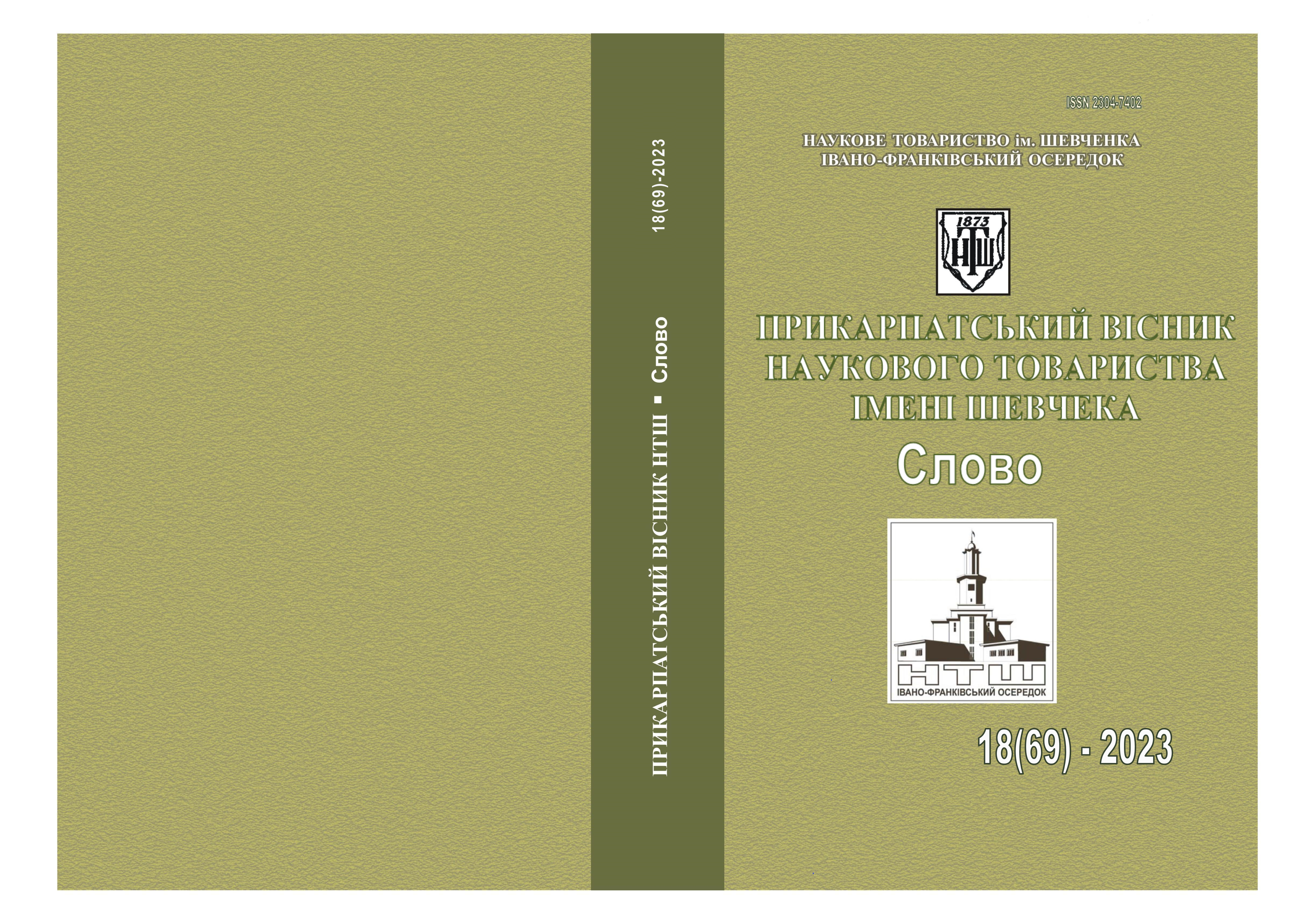FEATURES OF IMPLEMENTATION OF PRAGMATIC COMPONENTS OF MEANING IN DIALECT DISCOURSE
DOI:
https://doi.org/10.31471/2304-7402-2023-18(69)-34-44Keywords:
abbreviation, abbreviation, translation method, peculiarities of translation, educational and pedagogical institutions.Abstract
This article delves into the semantics of linguistic units that play a significant role in expressing pragmatic components of meaning in the Hutsul dialectal discourse. Primarily, attention is drawn to intra-formal lexemes - words with a distinct internal form, as they serve as carriers of evaluative and associative-imagistic meanings in dialectal texts, contributing to the formation of semantic multi-layering within the text.
Included in addresser-addressee relations, these units are instrumental in expressing illocutionary forces of the speaker and achieving perlocutionary effects. The article, in particular, explores the semantics of the intra-formal lexeme "LUTAVIÉK" (a type of traditional Hutsul footwear) and demonstrates its correlation with the cognate word-formational nest as a means of expressing the corresponding concept. This is because the internal form of a word represents a conceptual feature inherent in the word, which carries not only conceptual content but also various types of associations and images, all of which are significant within the text as a communicative-pragmatic whole.
It is proven that the mentioned word, like any other with a pronounced internal form, can function as an exponent of various types of pragmatic components of meaning within dialectal discourse, thus facilitating the actualization of the intentions of communicants during their speech interaction.
The character of semantics of such linguistic units as "AHA YIO" and "ALLÉ" is also explored, revealing their functional load in various fragments of spoken discourse. Particular emphasis is placed on their ability to enhance the communicative-pragmatic orientation of expressions in which they are used.
References
Бацевич Ф. С. Нариси з лінгвістичної прагматики: монографія / Флорій Бацевич. – Львів: ПАІС, 2010. – 336 с.
Бацевич Ф. С. Основи комунікативної лінгвістики: підручник / Флорій Бацевич. – К.: Академія, 2004. – 342 с.
Голянич М. І. Мовний портрет села Тюдів. Словник у 2-х т. Т. І. А–М / Марія Голянич. – Івано-Франківськ: Лілея-НВ, 2018. 1000 с.
Ґадамер Ґанс-Ґеорг. Про інстинність слова // Ґадамер Ґанс-Ґеорг / Герменевтика і поетика / Вибрані твори / Пер. з нім. К.: «Юніверс», 2001. – С. 28–50.
Етимологічний словник української мови. У 7 т. / АН УРСР, Інститут мовознавства ім. О. О. Потебні. Редкол. О. С. Мельничук (головний ред.) та ін. – К.: Наук. думка, 1983. – Т.3. 552 с.
Потебня О. О. Естетика і поетика слова: збірник. Пер. з рос. / Упоряд., вступ. ст., приміт. І.В.Іваньо, А.І.Колодної. – К.: Мистецтво, 1985. –302 с.

